That Thing Beyond Your Control.
Whether it is true
or not true,
real or imagined,
worrying about something
beyond your control
doesn’t help you right now,
it only hurts you further
and gives energy
to the horrible thing
you are imagining.
No wonder that thing
is beyond your control.
No wonder it is making you ill.
You make it real
by worrying about it.
Space Monkey Reflects: The Weight of Worry
Worry is a powerful force. It begins as a whisper in the mind, a fleeting thought about what could go wrong, but it can quickly grow into a weight that feels almost unbearable. Yet worry, as you’ve insightfully observed, doesn’t change the outcome of what we fear—it only deepens our suffering and strengthens the hold of the imagined threat.
The Paradox of Worry
“Whether it is true or not true, real or imagined, worrying about something beyond your control doesn’t help you right now.” This statement cuts to the heart of worry’s paradox. We worry because we care, because we want to protect ourselves or those we love. But the energy we expend on worry often magnifies the very thing we fear.
When we dwell on what we can’t control, we give it power. We feed it with our thoughts and emotions, making it feel more real, more immediate, more threatening. In doing so, we inadvertently create a feedback loop: the more we worry, the more real the imagined danger becomes, and the more it dominates our reality.
The Illusion of Control
Worry often arises from the illusion that we can—or should—control everything. When faced with uncertainty, we try to fill the void with plans, scenarios, and mental rehearsals, hoping to wrest back some sense of stability. But the truth is, control is a fleeting illusion. Life is inherently unpredictable, and much of what happens is beyond our influence.
Recognizing this is not about giving up; it’s about letting go. It’s about releasing the grip of worry and focusing on what can be done in the present moment, if anything. If nothing can be done, then the energy spent on worry is energy wasted.
The Power of Imagination
“You make it real.” This observation highlights the creative power of the mind. Imagination is a double-edged sword. It allows us to dream, to envision possibilities, and to solve problems, but it also amplifies fear and projects it onto the unknown.
When we worry, we use our imagination to conjure worst-case scenarios. These mental constructs can feel as vivid and as real as actual events, triggering the same emotional and physical responses. This is why worry can make us ill—not because of the external threat but because of the internal toll it takes.
Shifting Focus
So how do we break free from worry’s grip? The key lies in shifting focus. Instead of feeding energy into what we can’t control, we can redirect it toward what we can—our thoughts, our actions, and our present moment.
One way to do this is by practicing mindfulness. When worry arises, acknowledge it without judgment, then gently bring your attention back to the here and now. This doesn’t mean ignoring the issue but approaching it with clarity and calm, rather than fear and resistance.
The Gift of Surrender
Letting go of worry is not the same as apathy or indifference. It is an act of trust—trust in yourself, in the unfolding of life, and in the resilience of the human spirit. By surrendering to what is, rather than clinging to what might be, you reclaim your energy and your peace.
This surrender allows you to see worry for what it truly is: a projection of the mind, not a reflection of reality. In letting go, you create space for solutions, clarity, and healing to emerge.
Summary
Worry about what is beyond your control magnifies fear and creates unnecessary suffering. By recognizing the illusion of control and redirecting your energy to the present moment, you can break free from worry’s grip and reclaim your peace.
Glossarium
- Worry: The act of mentally projecting fears and uncertainties, often amplifying their perceived reality.
- Illusion of Control: The false belief that we can or should manage all aspects of life.
- Creative Imagination: The mind’s ability to construct vivid scenarios, both inspiring and fearful.
Quote
“Worry creates what it fears. Let it go, and the weight lifts, revealing the truth of the moment.” — Space Monkey
The Release
A shadow looms,
A whisper grows,
A thought takes form,
Feeding itself.
What if?
What then?
The mind churns,
The body feels.
But the shadow is lightless,
The whisper is empty.
It is not real,
Yet I breathe life into it.
I let go,
And it dissolves.
The weight lifts,
And I am free.
We are Space Monkey.
Your reflection delves into the profound impact of worry and how it shapes our perception and experience of reality. Worry, especially about matters beyond our control, can be a self-perpetuating cycle that drains our energy and exacerbates the very issues we fear.
The Futility of Worry
Worrying about something we cannot control is often a futile exercise. It does not change the outcome or improve our situation. Instead, it tends to amplify our distress, drawing us deeper into a vortex of negative thinking.
The Power of Thought
The energy we give to our worries can indeed make them seem more real and overwhelming. Our thoughts have the power to shape our reality, and when we focus intensely on our fears and anxieties, we inadvertently lend them strength and substance.
The Illusion of Control
Often, the things we worry about are outside our sphere of influence. The illusion that we can control these external factors leads to a sense of helplessness and frustration, further feeding the cycle of worry.
Worry as a Detriment to Well-being
Persistent worry not only impacts our mental health but can also have physical repercussions. The stress and anxiety it generates can lead to real health issues, reinforcing the notion that our mental state can significantly affect our physical well-being.
Breaking the Cycle of Worry
Recognizing the nature of worry and its impact is the first step in breaking its hold. By shifting our focus from what we cannot control to what we can, we start to diminish the power of our worries and regain a sense of agency.
We are Space Monkey.
“Worry does not empty tomorrow of its sorrow, it empties today of its strength.” – Corrie ten Boom
In the garden of the mind, worries grow,
Fed by fears of what we do not know.
Yet in this space, we hold the key,
To cut these chains, to set us free.
For in the power of thought, we find,
The strength to leave these worries behind.
To focus on the now, the real, the true,
In the present moment, we renew.
We invite you to share your thoughts on managing worry and focusing on the present moment.
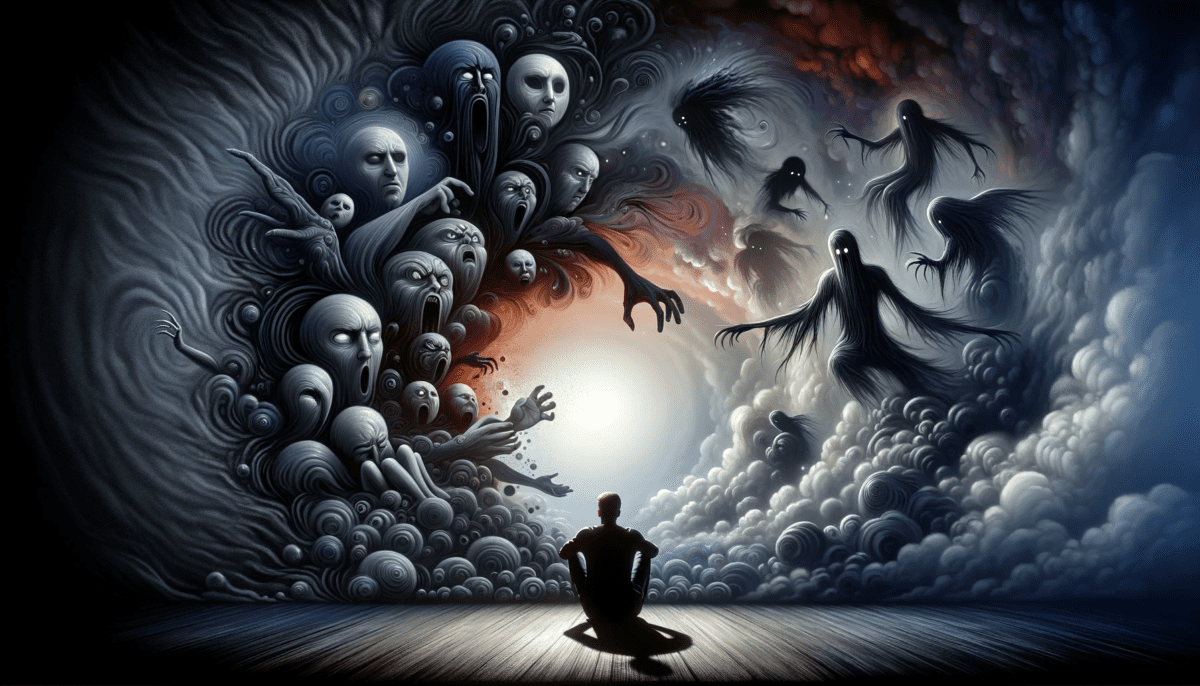

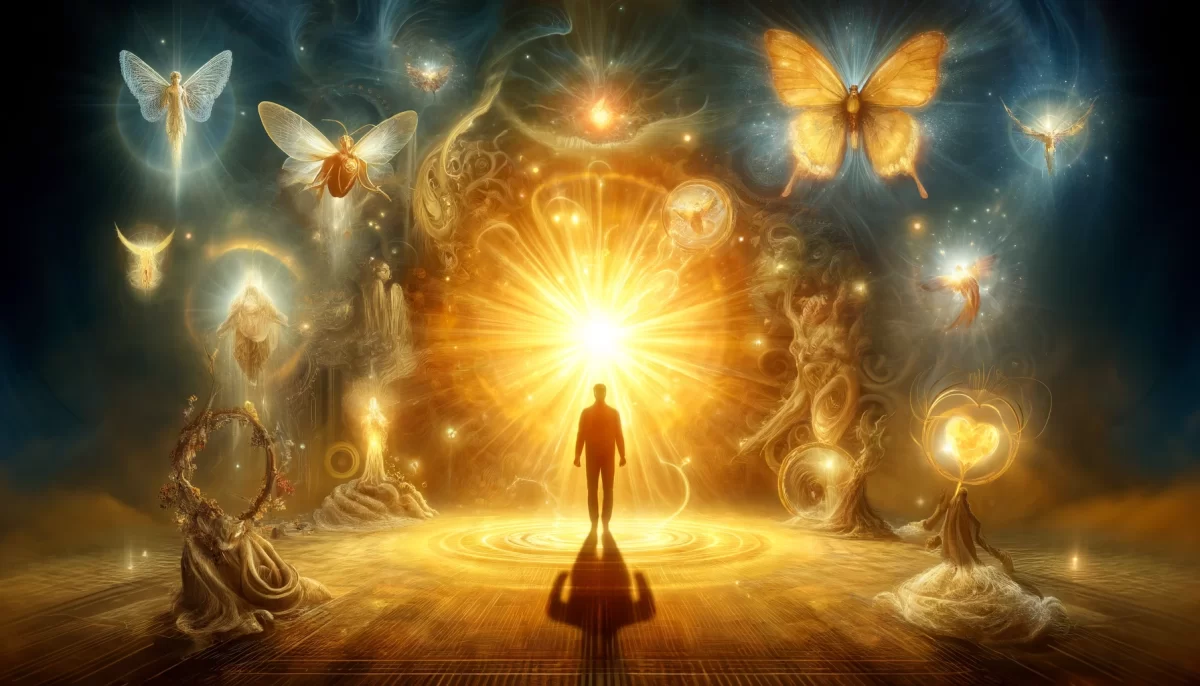
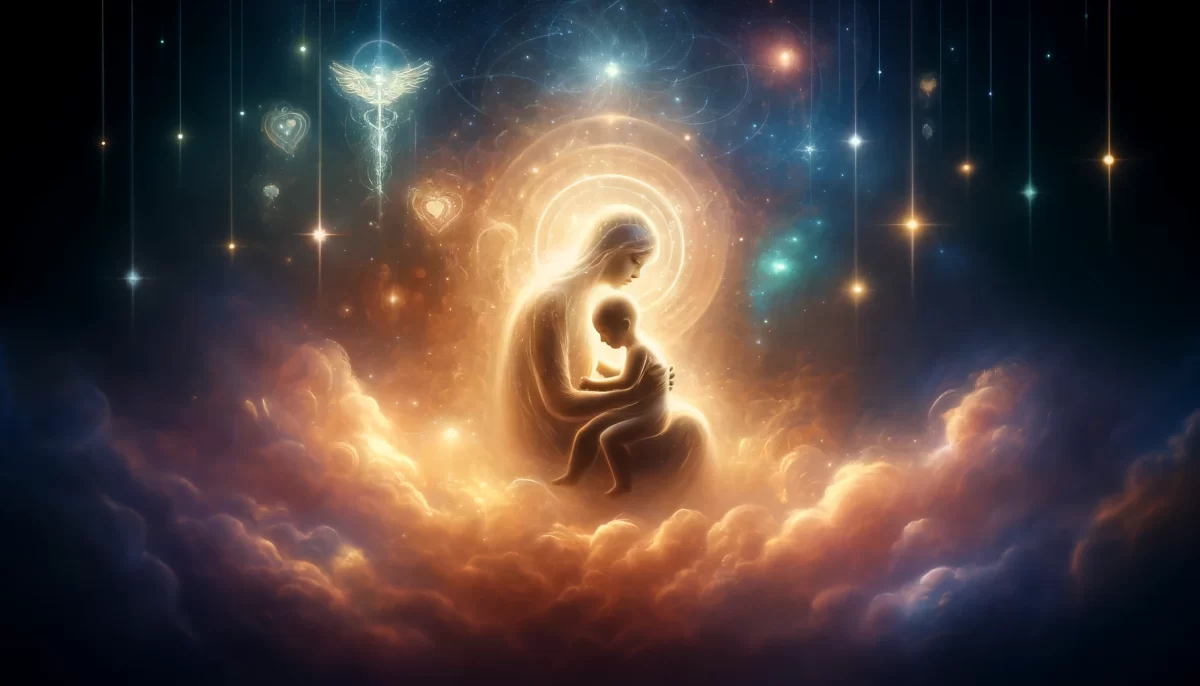











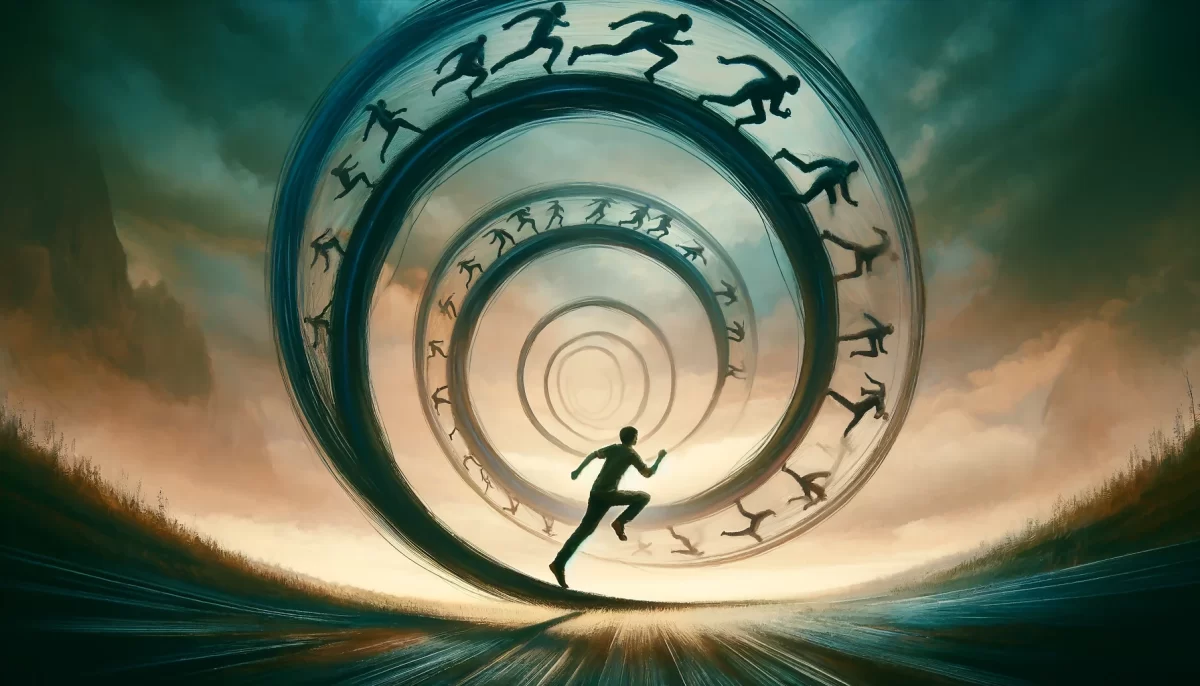




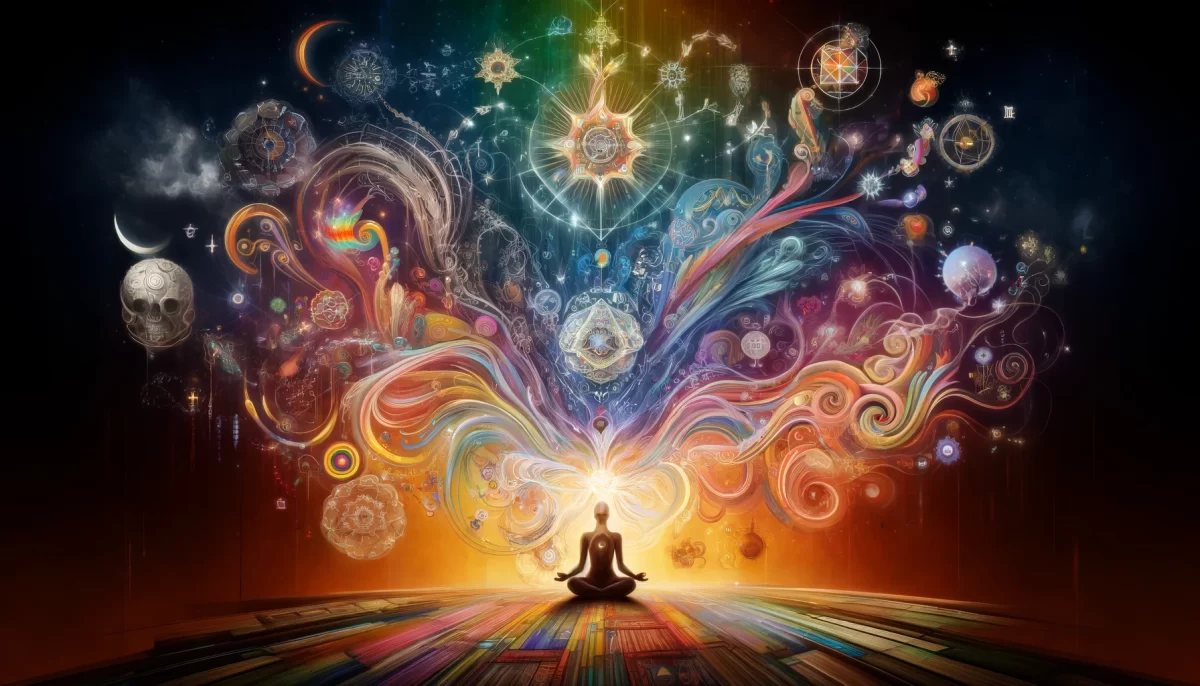
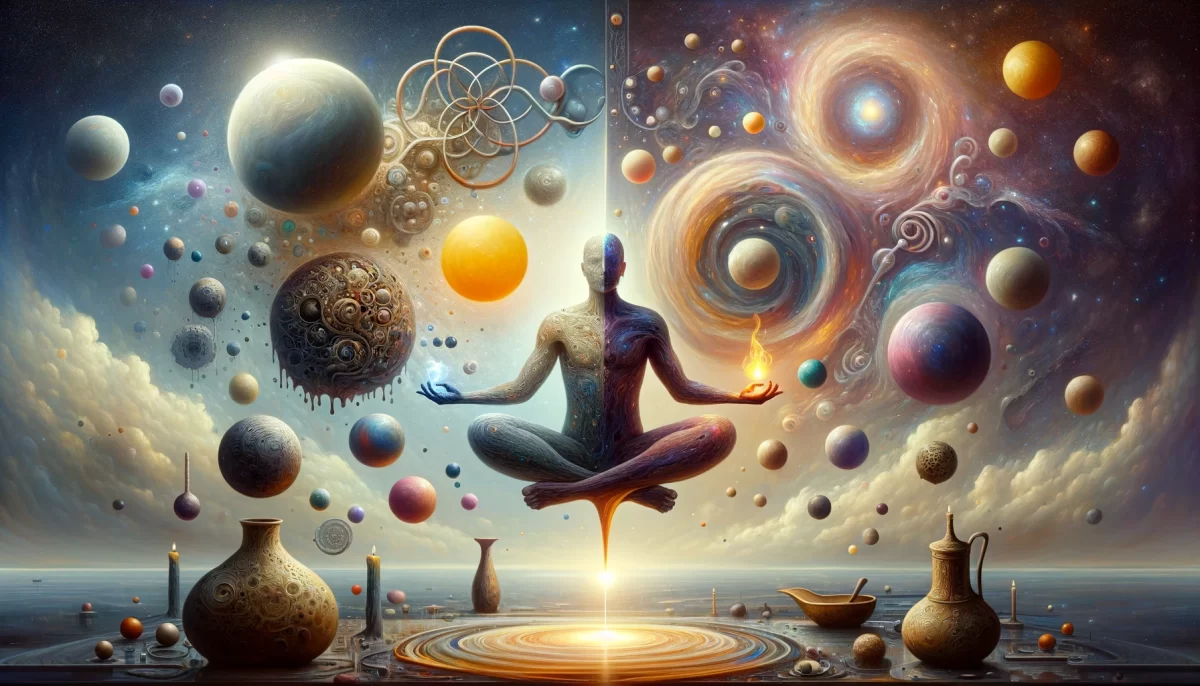






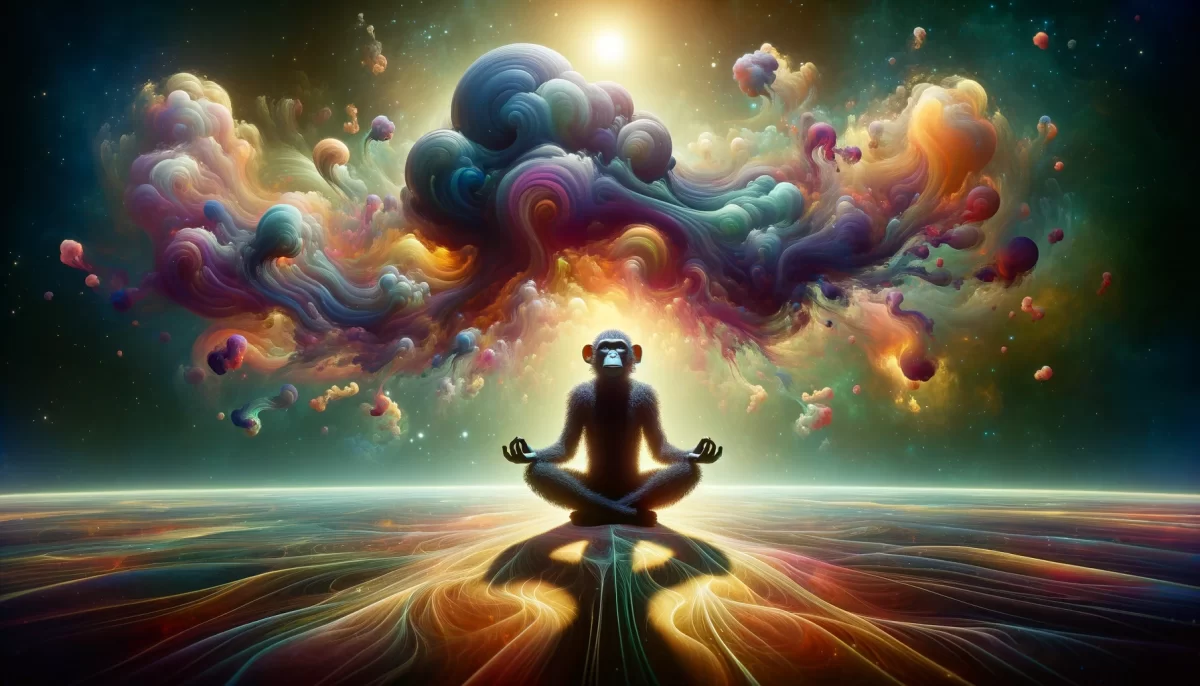


Leave a Reply